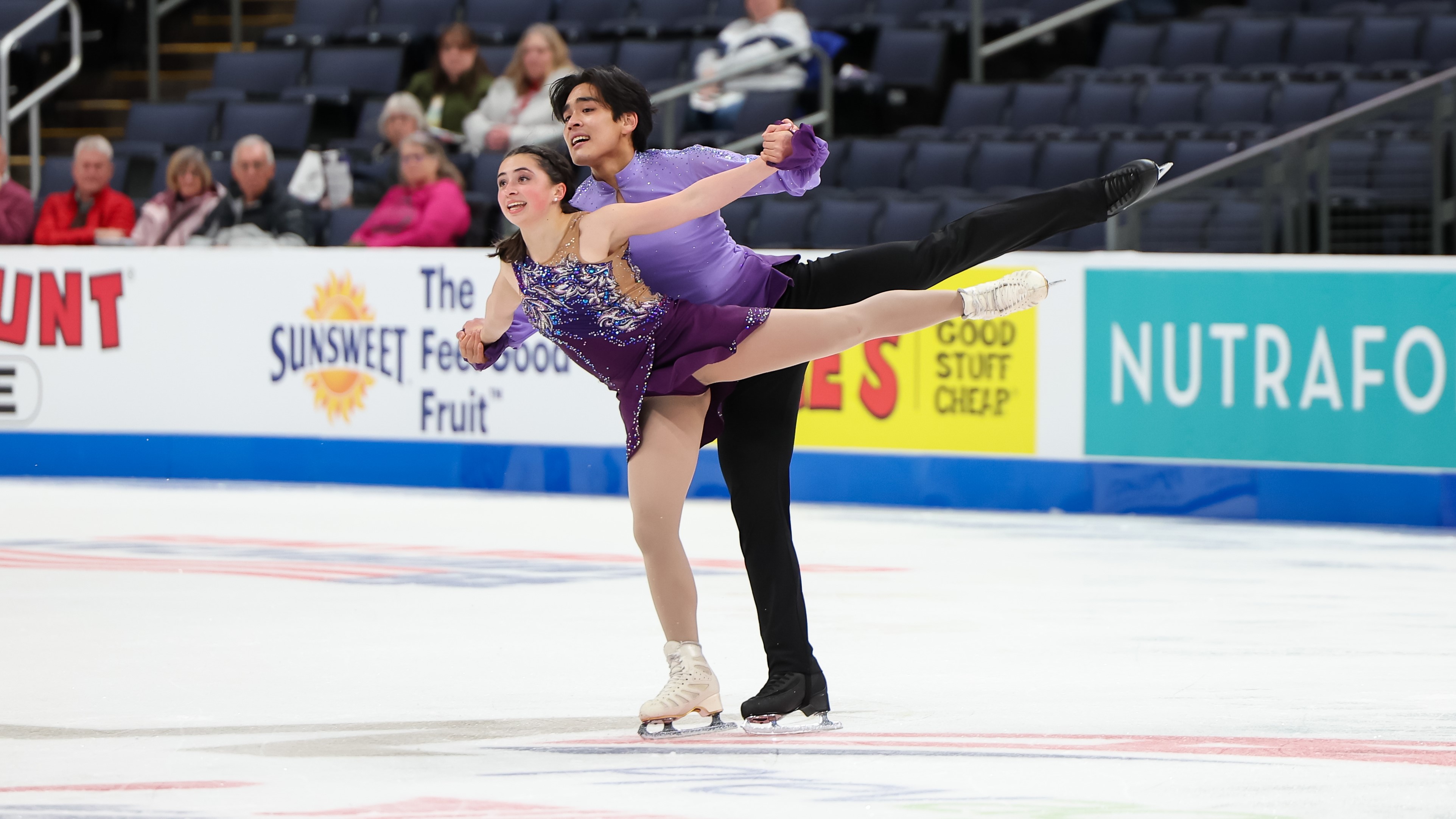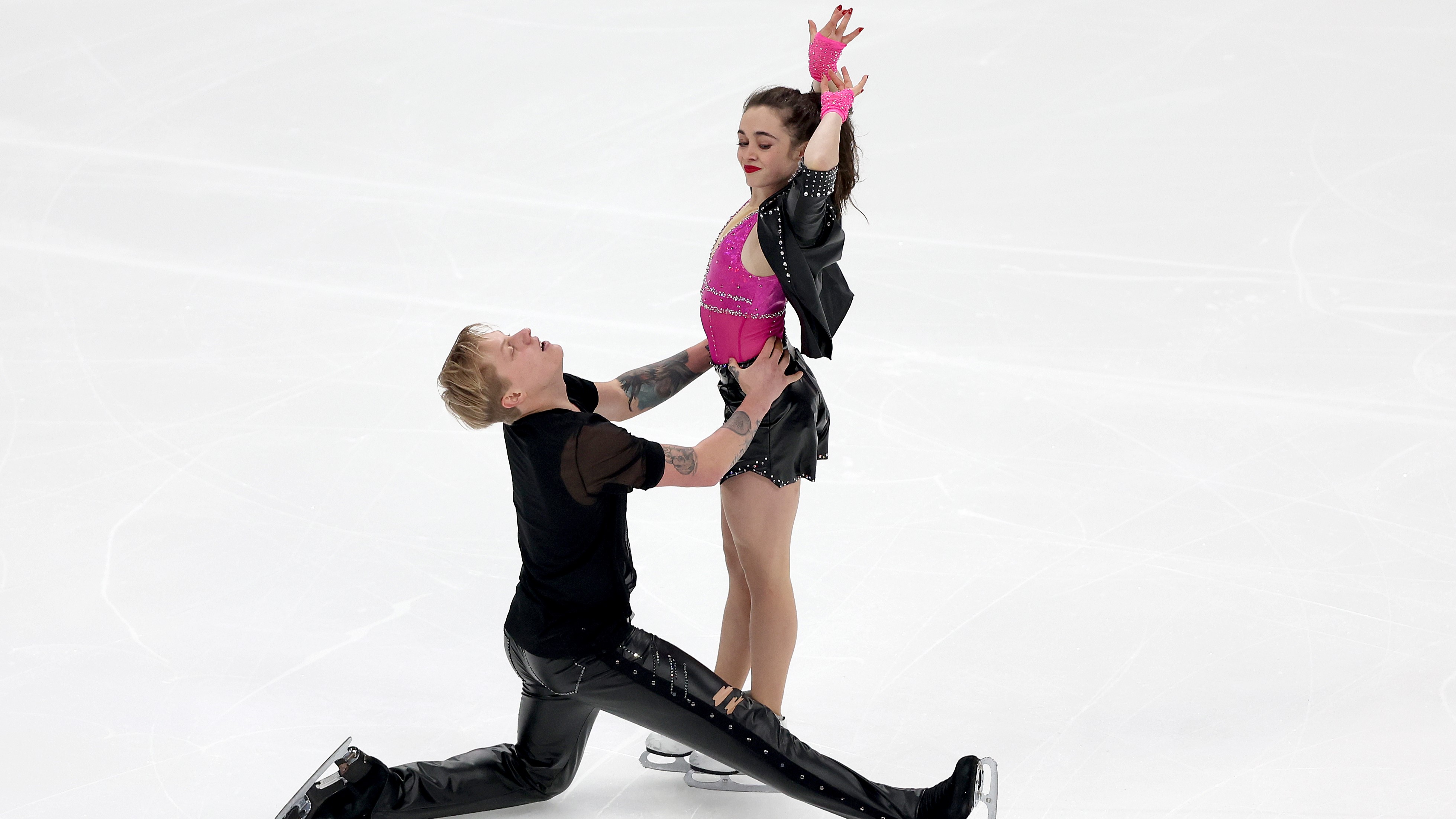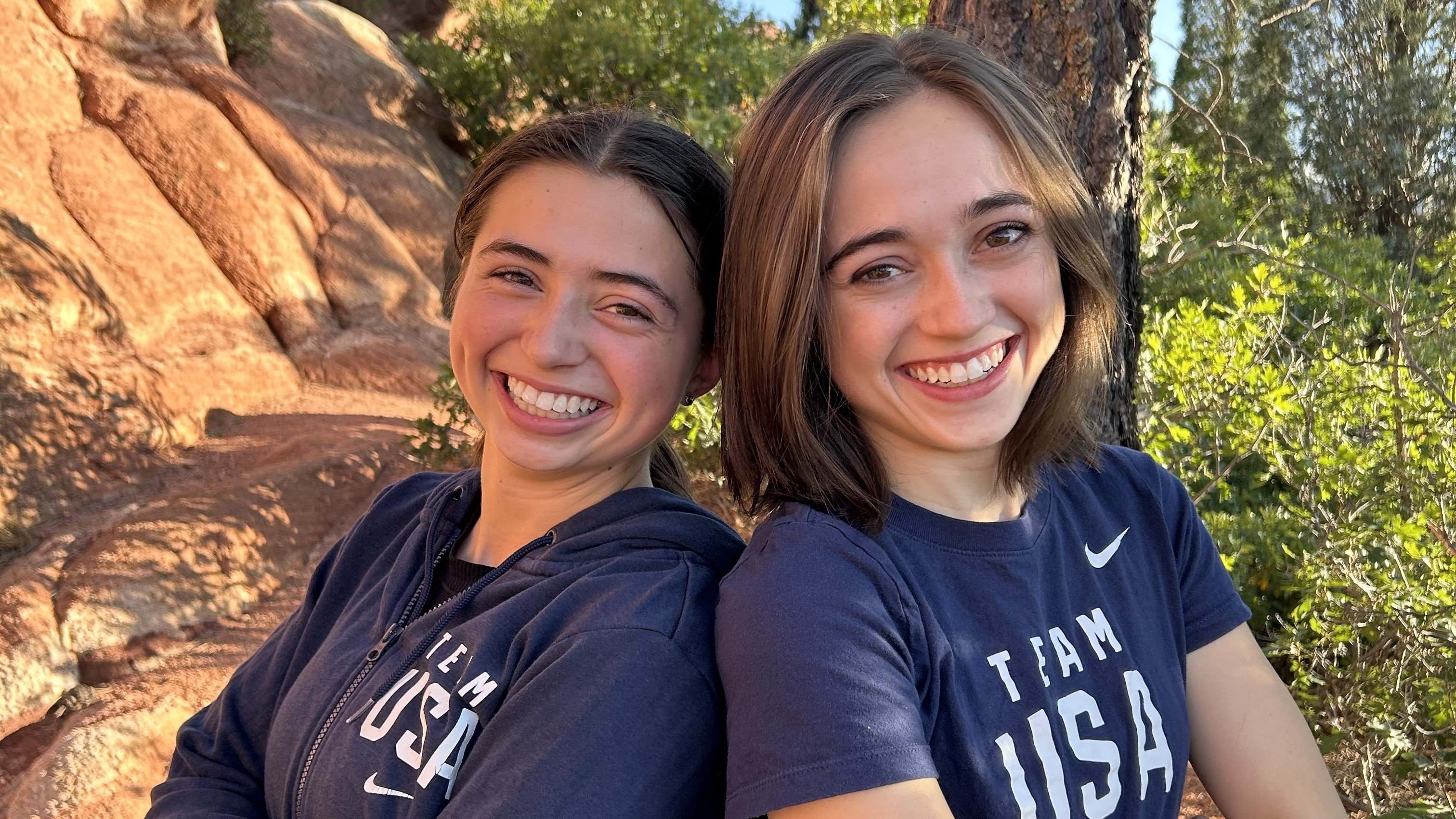Above: Olivia and Isabella Flores call Colorado Springs home. Photo courtesy of the Flores family.
By Jillian L. Martinez
For many Hispanic and Latinx people, family is at the core of their values. For the Flores sisters, Isabella, 21, and Olivia, 17, family is everything to them, as well. Isabella was 6 years old when she first started skating lessons, and it wasn’t long after that Olivia joined her on the ice.
“I wanted to be like my older sister, and I wanted to skate,” Olivia said.

Before the girls were born, their parents, Anthony and Holly, were serving in the Army and were stationed at Fort Carson in Colorado Springs, Colorado. According to Isabella, her parents loved living in Colorado Springs so much that they decided to move back to raise their family once they were discharged. As fate would have it, the opportunity to grow up in Colorado Springs was perfect for the sisters’ skating aspirations.
“I started with Learn to Skate, and then somehow I got into private lessons,” Isabella said. “And then I went to the World Arena, where everyone is like crazy serious. It all just happened. Luck took us on this ride.”
Now, the girls, who are of Mexican and Italian descent, are competing on the international level. Isabella is a senior ice dancer with partner, Ivan Desyatov, and will compete at the 2024 Skate America in October. Meanwhile, Olivia and her partner, Luke Wang, are the 2024 U.S. junior pairs champions and recently won silver at Junior Grand Prix Turkey and bronze at Junior Grand Prix Latvia.
“Our great-grandfather was from Mexico, so we have Flores as our last name,” Isabella said. “We’ve lived in this little figure skating bubble, but it has really been great to connect to people from different communities and inspire other Hispanic people to skate.”
Growing up in Colorado, the Flores sisters have been surrounded by Hispanic culture. Every Christmas, the Flores family celebrates with fresh tamales from a local shop. The girls also have strong relationships with their extended Flores family members in California and were able to attend their cousin’s quinceañera, a celebration that marks the passage of a young girl’s life from childhood to adulthood for her 15th birthday.
“We connect with [our] culture just by being with family,” Isabella said.
It’s not lost on the Flores sisters that the population of Hispanics in the U.S. is disproportionate to the population in skating. According to the 2020 U.S. Census Bureau, the U.S. Hispanic population reached 62.1 million, which accounted for 19% of all Americans, and was considered the nation’s largest racial/ethnic minority group.
“A few years ago, we had a competition in Santa Fe, New Mexico,” Olivia said. “And there were quite a few [Hispanic] people who came up and were excited to see our last name and were inspired to get their kids into skating.”
The Flores sisters admit they have felt immensely privileged to be able to participate in a sport where so few Hispanic people are represented. In addition to the Flores sisters, Mabel Fairbanks Skatingly Yours scholarship recipients Lindsay Thorngren (whose mother is from the Dominican Republic), Valentina Plazas (who hails from Bogota, Colombia), and shares Latin descent with pairs partner Maximiliano Fernandez, and Jacob Sanchez (whose family is Puerto Rican), are part of the small group of Hispanic skaters representing Team USA. Fellow scholarship recipient and up-and-coming junior skater Jessica Jurka was born in Peru and trains with the Flores sisters at the World Arena.
“We really admire [Mexican figure skater] Donovan Carrillo,” Isabella said of the first Mexican skater to qualify for the Winter Olympics in 30 years when he went to Beijing in 2022. “Donovan is very unique and special. He’s had to persevere and have an outstanding amount of grit to make a path where there wasn’t already a path paved for him.”

Carrillo was 13 when he had to move from his hometown of Guadalajara, because his hometown rink had closed. When he moved with his coach to León, his new training location became the Plaza Mayor mall ice rink where he often had to practice during public sessions.
Unfortunately, like many Latin American countries, Mexico lacks ice skating rinks, and, in fact, has no Olympic-sized rinks in the country. Since the 2022 Winter Olympics, Carrillo has moved to Toronto to train with coach Jonathan Mills.
“Skating at the World Arena, we have been seeing more Hispanic people come to train there from Mexico and from Argentina,” Olivia said. “Unfortunately, not everyone has the opportunity to train elsewhere.”
Isabella added the financial barrier has prevented many people, regardless of background, from joining and flourishing in the sport. However, she believes that a more diverse community would make the sport stronger.
“Hispanic Heritage Month is a time to celebrate our people,” Isabella said. “As Hispanics, we have the opportunity to be role models and create a space where young skaters like us can thrive.”
“Whether we’re coaching or we’re at shows, we’ll have people come up to us and say, ‘You’re helping create an environment that I want my kid to experience,’” Olivia said. “That opportunity and responsibility is exciting and empowering.”


